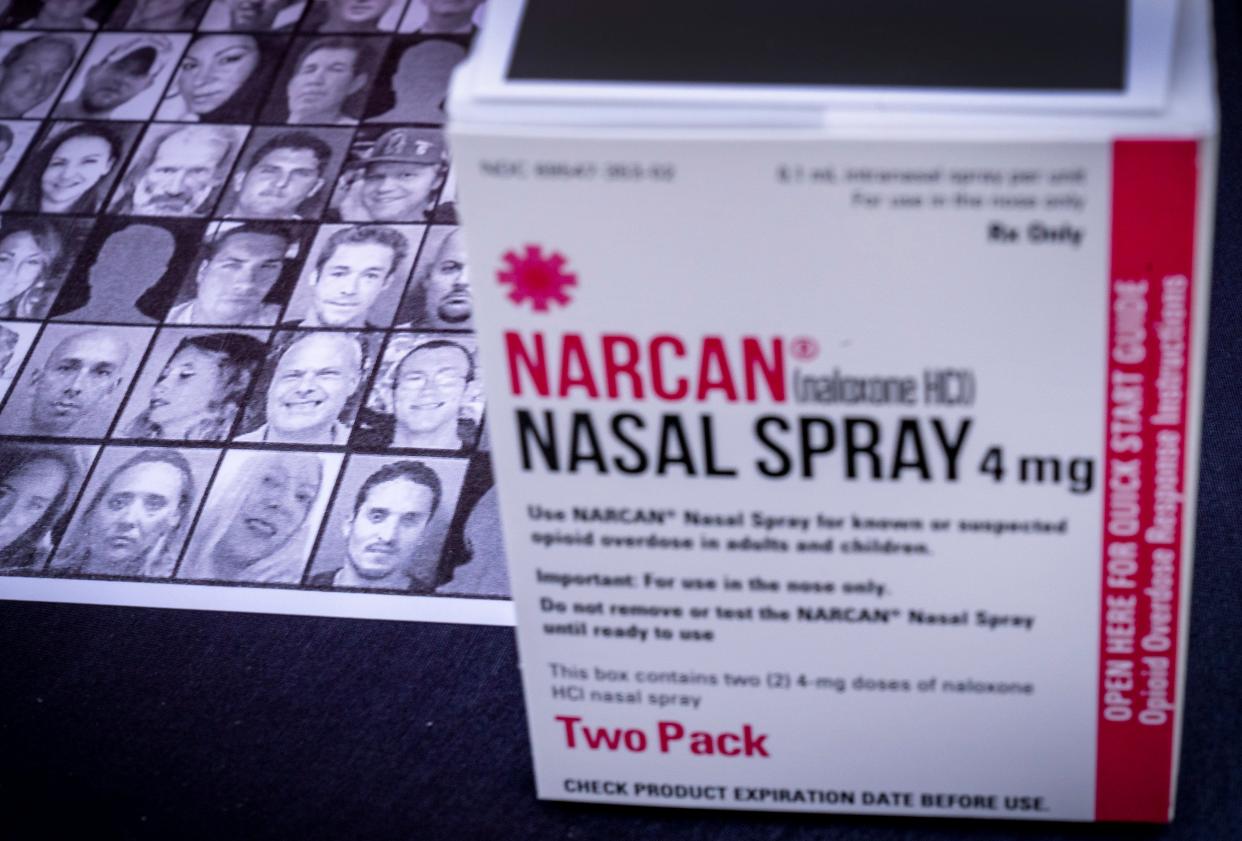Sheriff agrees to allow PBSO deputies to carry Narcan; cost expected to be $200,000

Palm Beach County Sheriff deputies will soon carry Narcan to revive victims of opioid overdoses.
Sheriff Ric Bradshaw reported the policy change Monday in a three-paragraph letter sent to county commissioners. He noted, though, that county commissioners will need to provide a supplemental appropriation of $200,000 as the funds are not included in this year’s or next year’s budget.
The department will conduct a three-year study on frequency and results of officers carrying Narcan to determine continued deployment.
Bradshaw has been under relentless pressure for years to make the policy change. Just a month ago, his top aide, Frank DeMario, told county commissioners during a budget hearing that Bradshaw felt it was not necessary. DeMario represented Bradshaw, who is recovering from heart surgery, during a county commission meeting to discuss the sheriff’s $724 million spending plan. The failure to allow deputies to administer Narcan was a major topic.
Read more: 'We are not paramedics': Why PBSO continues to reject having deputies carry Narcan
With overdose deaths on rise, addiction recovery advocates renew calls for PBSO to carry Narcan
More: How Florida ignited the heroin epidemic
County Commissioner Melissa McKinlay praised Bradshaw for making the policy change in a tweet, and said she already asked staff to include the funding request in a budget hearing to be held later this year.
So what promoted Bradshaw to reverse himself?
“In view of the current national opioid overdose epidemic and the large importations of Fentanyl, we have decided to allow our deputies to carry Narcan,” said Bradshaw in his letter to county commissioners.
“This decision falls short of a long-term solution to the addiction problem. The focus needs to be on education, prevention and treatment.”
Speaker after speaker at the recent budget meeting called for Bradshaw to reverse his long-standing position. Even a fellow sheriff, Dennis Lemma of Seminole County, wrote a letter urging that deputies carry Narcan. More than two thirds of the sheriffs in Florida currently do carry the lifesaving drug.
Addiction recovery advocates held a demonstration outside Bradshaw’s office earlier this year, pressing him for the change.
DeMario said at the July budget meeting that deputies are not paramedics, claiming “drug addiction is not a law enforcement issue. We do a lot but you are going to ask us to put another tool in our toolbox.”

The comments drew a firestorm of criticism.
Maureen Kielian of Southeast Florida Recovery Advocates, one of the critics, nonetheless, said she was ecstatic over the policy change.
“We have been calling for this to happen for years and all we got was one excuse after another. And most of them made no sense at all. I want to thank all the families who attended the budget meeting to make their feelings known. This is going to save lives.”
Kielian said it was clear that Bradshaw succumbed to the public pressure calling for change, noting: “If it were not for the media coverage, this would never have happened.”
Bradshaw cited liability reasons in the past for refusing to allow deputies to carry Narcan despite a state law that bars police from being held liable for administering the drug. PBSO also argued that nearly 99% of the time, Fire-Rescue arrived before deputies, a figure Kielian and others questioned.
From Jan. 2022: Palm Beach County can get up to $53M from national opioid settlement. It can't replace 3,792 dead.
How does the opioid-treatment drug Narcan work?
Narcan is a medication approved by the U.S. Food and Drug Administration designed to rapidly reverse opioid overdose. It works by binding to opioid receptors and can reverse and block the effects of other opioids, such as heroin, morphine and oxycodone. The drug is a temporary treatment and its effects do not last long so it is still critical to obtain medical intervention as soon as possible after someone receives it.
The medication can be given by intranasal spray (into the nose), intramuscular (into the muscle), subcutaneous (under the skin) or intravenous injection.
Whether deputies will continue to carry Narcan after what Bradshaw called a three-year trial period will depend on the results of a detailed review to determine how often deputies use it.
Kielian is concerned about the integrity of the study, noting that the sheriff has cited a previous one that claimed Fire-Rescue arrives at overdose scenes 99% of the time before his deputies.
When asked for a copy of the study, his spokeswoman said it was 10 years old and unavailable.
Dr. Marc Scholsser, an addiction medicine physician, says there is no reason why deputies should not carry Narcan, noting there are no side effects.
Any delay, however, in treatment is detrimental to the patient because a drug overdose restricts oxygen to the brain. He said Narcan will not hurt a patient “even if someone isn't overdosing on an opioid.”
Scholsser, who has helped develop opioid response programs at the Health Care District of Palm Beach County, said it takes 15 seconds of training, adding: “It is a nasal spray. You spray it in each nostril.”
Kielian questioned why it should cost $200,000 to initiate the program, noting that federal and state grants are available and that some non-profits also help with funding.
More than 6,000 people in Florida died because of opioids in 2020, a 42% increase over 2019, according to data available from the Florida Medical Examiners Commission.
Mike Diamond is a journalist at the Palm Beach Post, part of the USA TODAY Florida Network. He covers county government and transportation. You can reach him at mdiamond@pbpost.com. Help support local journalism. Subscribe today.
This article originally appeared on Palm Beach Post: PBSO deputies to carry Narcan to revive victims of opioid overdoses

